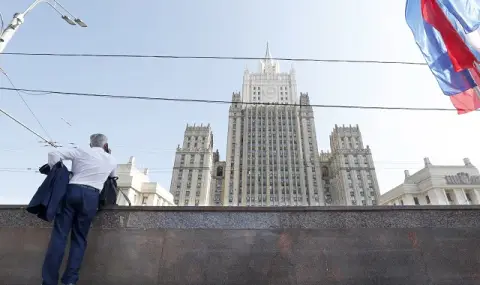After about 500 Russian spies working under the guise of diplomats were expelled from various countries in Europe, Moscow has apparently reoriented its espionage. An investigation by German media shows how this is done.
Last year, Russia limited the number of official German representatives in the country to 350 people – it is about the diplomatic staff, but also about teachers and associates of foundations. In turn, Germany ordered the closure of Russian consulates, and the Putin regime decided to leave only the embassy in Berlin and the consular general of Russia in Bonn.
The expulsion of dozens of Russian spies working under diplomatic cover dealt a heavy blow to Moscow. However, it has since reorganized its activities, WDR, NDR and "Süddeutsche Zeitung" wrote, citing sources in the security sector. According to their research, about 20 spies are still accredited as diplomats in Germany. However, this is no longer enough to carry out complex operations - including because these remaining employees are in the sights of the German security authorities, the three publications write.
Spies-diplomats
Spies disguised as diplomats have always been the focus of the Federal Office for the Protection of the Constitution (Domestic Intelligence). Thanks to their diplomatic status, they are largely immune from prosecution and have traditionally been used to recruit sources for information. According to German counterintelligence estimates, up to a third of Russia's diplomats are actually agents.
Until Russia's attack on Ukraine, German politicians refrained from extreme measures against this army of Russian spies in order not to strain diplomatic relations. Now this policy of restraint was put to an end. In 2022, Germany expelled 40, and the following year – 30 more Russian “diplomats” – virtually all of the technical staff. A number of other countries in Europe did the same, with a total of around 500 Russian spies having to return home. Today, there is not much left of this espionage network in Russia's diplomatic and consular services, which was built up over decades.
There are reports that Russia is trying to replace agents expelled from Europe with spies who previously worked in embassies in Africa. The Dutch domestic intelligence service also recently warned that Moscow was deploying agents with falsified biographies disguised as businessmen. At the same time, Russia relies on countries with friendly governments such as Hungary or Serbia. Russian spies are also said to be operating in Turkey, Dubai and North Africa. There are serious suspicions that the Putin regime works closely with organized crime.
"Harder approach"
Since the start of the Russian invasion of Ukraine in February 2022, Moscow has changed its tactics and adopted a "harder approach". German domestic intelligence specifies that this includes more unscrupulous actions – even at the cost of exposing some operations. A good example of this is the release of an overheard conversation between senior German officers discussing the request to provide Taurus cruise missiles. of Ukraine. The purpose of this operation was to turn the Western Allies against each other.
In addition, news sites are actively used to conduct large-scale disinformation campaigns. In Poland and the Czech Republic, for example, networks of political influence through the bribery of politicians were uncovered. A former high-ranking manager of the German DAX stock index has been highlighted as leading a network of agents across Europe.
The consulate in Bonn clearly plays a special role
The Consulate General in Bonn seems to have a special role in Russian espionage: the former German capital is still home to most of the staff of the Ministry of Defense, and a number of international organizations whose activities are of interest to Moscow also work there. At the same time, Bonn is located in a place from where employees can easily and quickly be sent to neighboring countries such as France, the Netherlands, Luxembourg or Belgium.
Brussels, as the seat of the European Union and NATO, is of particular importance to the Russian leadership when it comes to gathering information. In the meantime, however, Belgium has taken some pretty solid measures against Russian espionage, and this increases the importance of the Russian agency in Bonn, since Russian spies there are probably not so actively monitored by foreign secret services. It will mean that they can move more calmly and meet with informants, explain investigative journalists from WDR, NDR and ZC.
"Travel Agents"
What is particularly important: if these “travel agents” were to be revealed, there would not necessarily be diplomatic turmoil, since they were not operating where they were officially accredited as embassy officials. In this sense, Moscow uses an international loophole.
Apparently, maintaining sources abroad has become even more important for Russia – especially for espionage purposes in Germany. According to security sources, accredited diplomatic personnel in Austria, for example, appear to play an important role in operations in Germany. Vienna did not join the mass expulsion of embassy staff – so far only eight Russian spies have been expelled from Austria. And it is assumed that up to 100 Russian spies accredited as diplomats are operating in Vienna alone, WDR, NDR and ZC also write.
